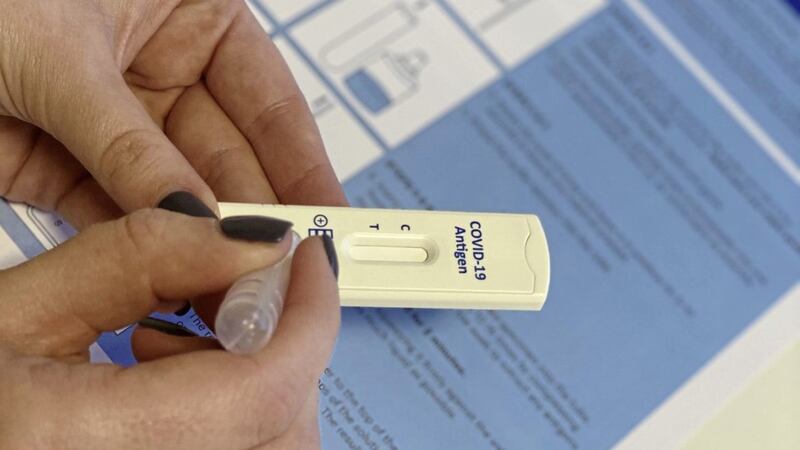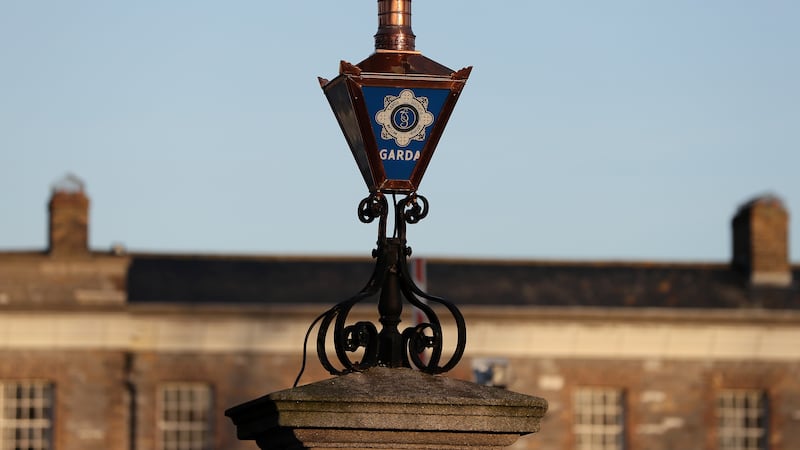There are “challenges” in the coming weeks, as efforts to reduce the number of Covid case numbers step up, the Taoiseach has said.
Micheál Martin said the restrictions brought in two weeks ago and the “call to arms” to reduce social contacts and work from home has helped stabilise cases.
Speaking at the launch of the North East Inner City progress report in Dublin, Mr Martin said the measures and the booster programme have had an impact.
He made the comments ahead of a meeting of the National Public Health Emergency Team (Nphet), who will discuss the latest Covid-19 situation facing Ireland.
With only weeks to go until Christmas, health officials are meeting to discuss whether any new measures are needed to curb the spread of Covid-19.
“I think the measures we announced two weeks ago and the general, if you like, call to arms, where we said to the public, reduce social contacts, reduce socialisation, work from home if you possibly can, get vaccinated, get the booster when you are asked, is having an impact,” Mr Martin said.
“There has been a stabilisation of hospital numbers and of ICU numbers and in some of the older age cohorts where the booster has been rolled out, there has been a downward trajectory.
“That said, the Delta wave is still at a high level.
“The challenges facing us are obviously the season that we are in and also the CMO (chief medical officer) is watching the combination of potential flu season in the new year and then the Omicron variant.
“There are challenges that we have to be mindful of and obviously Nphet are meeting today and they will make recommendations to the Government and Government will consider those recommendations.
“I spoke to the president of the European Union Commission (Ursula von der Leyen) last evening and the basic message there was that it will take the guts of three weeks before scientists will have a comprehensive picture (of Omicron).
“In the next number of weeks, we’d have to be cautious in respect of that variant, and its potential to do harm.”
Mr Martin said that the country has stabilised the Delta wave and its impact on hospitals and intensive care units.
He said that up to 11,000 people came forward to get their first dose of the Covid-19 vaccine last week, with a further 10,000 getting their second dose.
“So we’re continuing to appeal to people to get your first and second dose if you haven’t done that, and also to get your booster,” Mr Martin added.
Minister for Finance Paschal Donohoe said he understood the pressures facing businesses as a result of the restrictions.
“The government has shown again and again that we have backed businesses here in Ireland, as we are all coping with a pandemic,” Mr Donohoe added.
“The EWSS (employment wage subsidy scheme) alone has seen over five billion euros invested in to support employers at a time of such pressure.
“For November, the government spent €414 million trying to support businesses and keep them open and assist in hiring workers and getting them off the pandemic unemployment payments.
“What we’re going to do is, when we are clear on the latest advice from Nphet, we will do what we always do, we will review where we are with the scheme and see if it is appropriate and see if there are other decisions that we need to make. I think the Government committed to do that.”
Ministers have sounded a note of cautious optimism in recent days that rates of Covid-19 have stabilised, despite the identification of the new Omicron variant in Ireland on Wednesday.
According to the latest figures, 117 patients with Covid-19 remain in intensive care.
“For at least the next two weeks, if we can all make a concerted effort to reduce our contacts, then I am hopeful that we can make a real difference to incidence of disease in Ireland,” chief medical officer Dr Tony Holohan said on Wednesday.
Earlier, Health Minister Stephen Donnelly put forward legislation to permit the reintroduction of hotel quarantine if deemed necessary.
“The threat of the emergence of variants of the disease has not gone away,” Mr Donnelly told the Dáil.
“It strikes a fair and proportionate balance between the protection of public health and the common good in the situation we face on the one hand, and the restrictions of individual rights on the other.”
He said that the legislation puts the government in a “better position to react quickly”.








